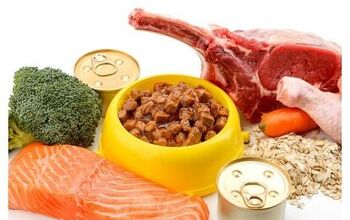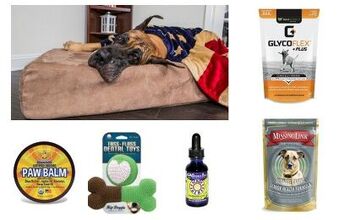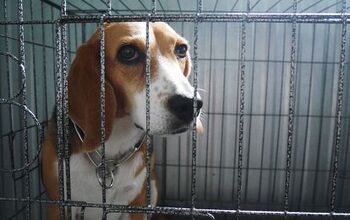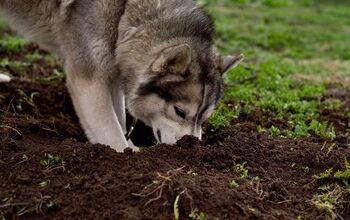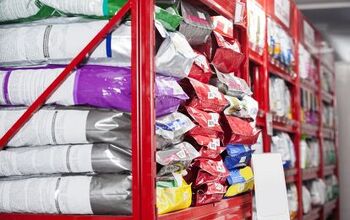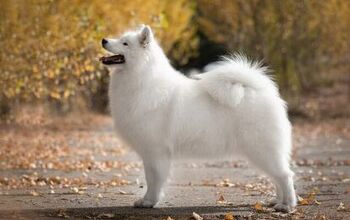Today’s pet food market is vast, with more offerings regularly coming out. You may be overwhelmed when it comes to choosing the best canned dog foods. You want to find something your dog will enjoy eating, but will also benefit from in health and nutrition.
But that’s why we’re here! We’ve scoured ingredients and labels, as well as reviewed and tested tons of wet dog foods in search of what you might need for your furry friend. Not every dog parent will have the same needs when it comes to finding the best canned dog foods. Some are looking for specifics due to an age or stage in life. Others may need to pay attention to diet restrictions or weight management as well. Others still may want something delicious and budget-friendly, and we’ve done all the work for you to find the best canned dog foods for your pups.
Why Look For The Best Canned Dog Foods?
Did you know that from a nutrition standpoint, water is even more critical to a dog’s diet than what ingredients are in his dog food? It’s true. Dogs naturally lose water all day long–they sweat through their paws and lose water as they pant. When they do their business, whether it’s the tinkle or the poop, they lose water.
Generally, experts suggest about an ounce of water a day for every pound your dog weighs. That means that your 50-pound Lab mix ought to get at least 50 ounces of water a day. That’s almost a liter and a half of water (think of soda bottles) and without enough water, dogs can get very sick and die.
Canned/wet dog foods help replace and maintain water in your dog’s diet. Particularly useful if your dog doesn’t seem to drink as much as he or she should (and you really should keep track of how much a day they drink), canned dog foods are a great way to keep your dog hydrated. And, because canned dog foods have a high water content, dogs can eat more substantial portions with fewer calories. This will leave them feeling more satiated than if they were to just to eat dry kibble and can help with weight management as well.
Picky, Picky, Picky: Canned Dog Foods To The Rescue
And, if you have a picky dog, you know that canned dog foods can be miracles in that they can be used as toppers with dry foods. In our house, we call the canned dog food toppers ‘sprinkles,’ and our dogs love them. Canned dog foods as toppers are great because they can help break the humdrum of the same daily kibble up in ways that are easy to vary and delicious for your dog. Plus, if you have multiple dogs with multiple dietary needs, you can easily meet each need with specifically targeted canned foods.
Picky dogs prefer canned dog foods too simply because they smell better. If your dog is picky, an enticing smell may encourage eating, and if you have older dogs who may not have keen senses of smell any more, canned dog foods may encourage them to eat too.
What To Look For In The Best Canned Dog Foods
When you’re looking for the best canned dry dog foods, you need to become a label investigator. Not every canned dog food is created equal, and you don’t want to waste hard-earned money feeding your dog something that doesn’t have good nutritional content or value. Worse, you don’t want to feed them things that aren’t good for them, as we want them to be with us as long as they can be.
Look for canned dog foods that have meat as one of the first and main ingredients. Look for real meat–those that have real meat as a primary/first ingredient will most likely offer your dog the right amounts of lean protein they need for fitness and health, as well as energy and strength.
When looking at the labels, try to stay away from anonymous meat ingredients and generic animal fats. Good canned dog foods don’t have to use them, and your dogs won’t really benefit in the long run if you’re not sure about the transparency. As well, you want to pay attention to the fat-to-protein ratio and the carbohydrate content. A moderate fat-to-protein ratio is desirable and carbohydrate content should be modest.
And while many fear grain-free diets these days, experts say that there’s simply not enough evidence to support that grain-free diets are harmful to dogs, so don’t shy away from a good canned dog food simply because it isn’t grain-free. That said, there are plenty of offerings on the market now for grain-free, so there really is a canned dog food for every pet parent.
Also, watch out for coloring agents and chemical preservatives. To a degree, canned dog foods need preservatives to make them shelf-stable, but they certainly don’t *need* high-risk coloring chemicals, nor do they need preservatives that researchers are finding could cause cancer. While it is dog food you’re considering, it’s for your best friend, so if you don’t feel safe with the ingredient for your family member, it’s most likely not great for your furry ones either.
Last, look for what you need in a canned dog food for your dog’s specific needs. If you have a puppy, many canned puppy foods will have DHA supplementation for the healthy development of eyes and puppy brain, while canned dog foods for senior dogs often contain glucosamine or CoQ-10 to help those old bones and joints. You can find canned dog foods that have probiotics in them if you’re looking to bulk up robust immune systems, and there are some companies who cater to specific sensitivities and allergies in their canned dog foods too.
To Store Or Not To Store–How Is The Question?
Storing canned dog foods obviously is different than how one would with dry kibble. If you have medium-to-bigger sized dogs, you most likely will go through a can or two (or more) each feeding and you may not need to store them. But, if you have a smaller dog, or you use canned dog foods as toppers, you want to be careful about a few things for protection against bacteria.
You can freeze canned dog food, in a freezer-safe bag for typically up to six months. When you do so, you’ll want to serve in portion sizes, so that you can take it out of the freezer and thaw it to room temperature before you serve it to your dog. Some pet parents even warm canned dog food up, and this is okay to do but obviously do so in a warming-approved dish (never use the can as a container if warming food up).
After a can has been opened, however, if you don’t freeze extra, you can typically store it in the refrigerator for about seven days. Most dog food manufacturers advise against keeping it in the fridge for any longer than that due to the risk of bacterial contamination. It’s okay to store it in the can it came in–there are nifty little covers for doing so–but honestly, experts advise that if you have leftover food in the cans, you should transfer to a refrigerator-safe dish until the next use.
And, once the canned dog food has been served to your dog, it’s important not to let it sit out for more than about four hours. Just like our food, it is subject to spoiling and contamination if left out for longer, and so when feeding picky dogs, you may just want to dish out small portions at a time so you don’t waste any. Always wash your dog’s food bowl after serving canned dog food with hot soapy water to be sure there are no wet tidbits left that can become contaminated and make your dog sick.
But Won’t It Rot Their Teeth?
That seems to be the question that pet parents ask all the time; won’t wet food rot their teeth? There seems to be the myth that dry kibble tends to be the best food for a dog’s teeth because it will help keep tartar from building up on their teeth. But think about this–do you think it’s better to brush your teeth with Oreo cookies or an organic superfood smoothie? While that’s not exactly comparing apples to apples, it’s somewhat archaic thinking when we assume that dry kibble is better for the dental health of a dog’s mouth and teeth. The reality is that proper dental care can come from good habits like chewing on dental toys/bones and brushing your dog’s teeth. Dry kibble can sit on a dog’s teeth just as easily (and get smeared across) as wet food can, and since the water content of a canned dog food is so much higher, your dog has a better chance of dissolving more wet food and removing from their teeth with saliva and swallowing than they do with dry.
Best Canned Dog Foods For Every Dog Parent
We looked at ingredients and reviewed several different canned dog foods to find the best canned dog foods we could. We spoke with experts about what makes the best canned dog foods, and we looked at the ingredients, flavors and options for different ages and stages of dogs. We also talked to dog parents from all over and got their picks, as well as high Amazon reviews and have compiled the only list you’ll really need!
1. Vet Pick: Hills Science Diet Wet Dog Food










